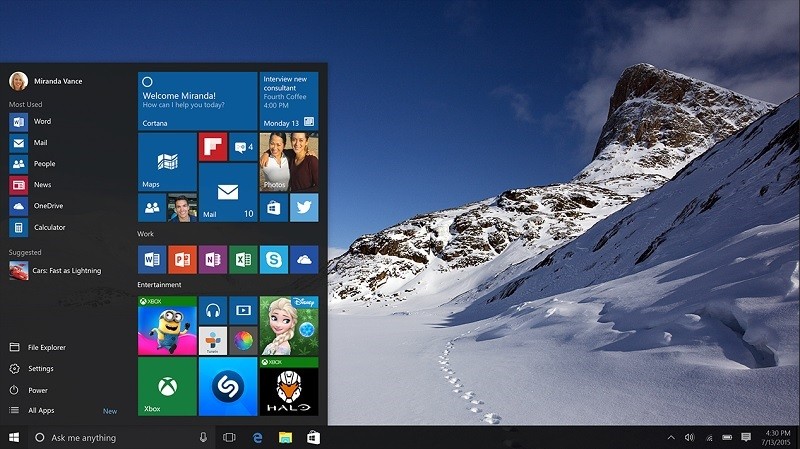
Following the announcement of Windows 10's official launch date (it's July 29th, in case you were wondering), Microsoft has also revealed just how much Windows 10 will cost for those who are building new systems or who aren't eligible for the company's free upgrade offer.
Basically, Windows 10's pricing will stay the same as Windows 8.1's current pricing in the United States. That means Windows 10 Home will retail for $119, just like standard Windows 8.1; while Windows 10 Pro will retail for $199, just like Windows 8.1 Pro. The Windows 10 Pro Pack, allowing you to upgrade from Home to Pro, will cost $99.
The price of Windows 10 will be irrelevant for most people currently using Windows 7 or Windows 8.1 on their PC, as they will be eligible for Microsoft's limited time free upgrade offer. And in case you're wondering which version of Windows 10 you'll be upgraded to, Microsoft has revealed the upgrade pathways for Windows 7 and 8.1:
- Windows 7 Starter, Home Basic, Premium and Windows 8.1 users will be upgraded to Windows 10 Home
- Windows 7 Professional, Ultimate and Windows 8.1 Pro users will be upgraded to Windows 10 Pro
- Windows Phone 8.1 users will be upgraded to Windows 10 Mobile
- Windows Enterprise, Windows RT and Windows 8 users are not eligible for a free upgrade
Although Windows 8 users are not directly eligible for an upgrade to Windows 10, by upgrading to Windows 8.1 for free, they will be able to take advantage of Microsoft's offer. As for Enterprise users, Microsoft will provide upgrades through their standard licensing agreement.
https://www.techspot.com/news/60860-standalone-copies-windows-10-cost-up-199.html